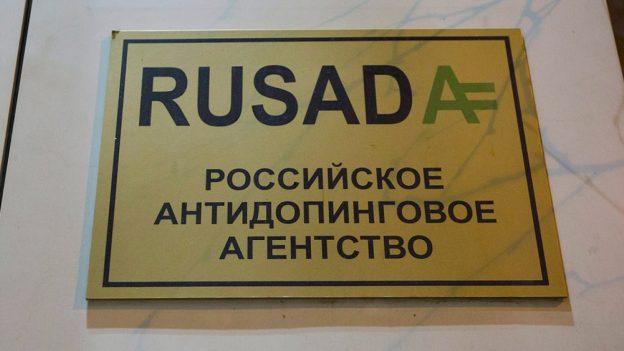RUSADA is Russia’s anti-doping governing body and officials from this organization recently announced that six athletes from the country have been banned due to positive tests for performance-enhancing substances. One banned athlete, Lyubov Kharlamova, is part of the group of six. Kharlamova, a female athlete who is a long-distance runner, was once a medalist in the European steeplechase. A weightlifter was also banned.

RUSADA offers details about the busts at its official website. The decisions to ban were made 6 weeks after the governing body was permitted to start drug tests once more. Previously, RUSADA was restricted from performing drug tests due to allegations from WADA (world anti-doping agency) that Russian officials were involved with the doping of Russian athletes.
Russian officials denied the allegations.
At this point, the Russian drug tests carried out by RUSADA are overseen by another anti-doping governing body, UKAD, as well as a group of experts from different nations.
Kharlamova Has Been Banned Before
This isn’t the first ban for this thirty-six year old steeplechase medalist. She was previously banned for couple of years, following a positive test for banned substances. The competition she tested positive for was the European Athletics Championship (2006). It was held in Gothenburg.
After the ban was complete, she re-entered competition and won a silver medal at the European Championships, which were held in Barcelona, Spain. At present, she faces another two-year ban. This means that she won’t be able to compete again until summer of 2019. In addition, her results for dates between the end of July, 2010 and the present day will be removed. For this reason, she’ll have her silver medal from Barcelona taken away.
The official RUSADA website also lists a long-distance runner named Irina Sergeyeva as being banned. She was a silver medalist at the European Cross-country Championships in 2009. This is a first ban for Irina, who has always tested clean in the past. She won’t be permitted to compete for another 2-1/2 years.
Next on the list is a steeplechase runner known as Ekaterina Doseykina. She was a competitor at the World Championships (2015), which were held in Beijing, China. She has received a suspension already, for breaking “whereabouts” rules. However, things are worse for her now, as she is banned from competing for a full four years. As well, her results from August 2015 to November 2016 have been disqualified.
A race walker, Zilya Garipova, received a ban of the back-dated type. The ban is back-dated to October of 2016.
In addition, the official website for RUSADA suspended a hurdler named Ivan Khudyakov. His ban will last four years. A big, eight-year ban was given to a female weightlifter, Anastasiya Vorobyova and this ban commenced on the 25th of July, 2017.
The Russian Athletics Federation Set the Bans
RUSADA declared that ban decisions were made via RAF (Russian Athletics Federation), after the organization received materials from RUSADA.
Fines are always possible punishments for these types of drug offenses. However, the leader of WADA believes that bans (and stripping competition results) are a more effective deterrent. There is the possibility of a “blanket ban” against Russia by WADA, based on the rash of positive test results by Russian athletes. We’ll see how things play out in the Olympics 2018, which will be held in Pyeongchang. Sanctions are another possibility.
Beckie Scott, who won gold for Canada in 2002, during cross-country skiing competition, feels that fines are sufficient, as, in the opinion of this Olympian, there is way too much corruption and doping. In Scott’s view, more needs to be done to stop Russian doping, especially in relation to the Olympics.







